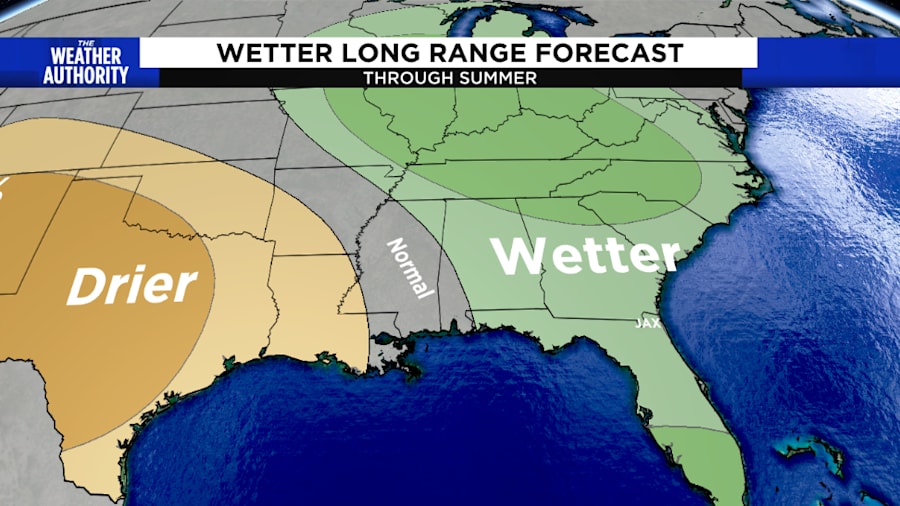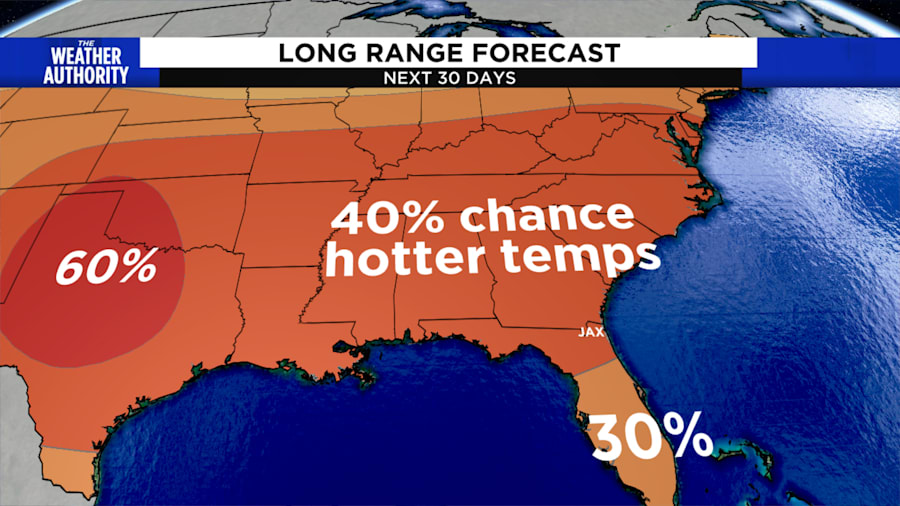JACKSONVILLE, Fla. – Get ready for a hotter summer compared to years past.
The National Oceanic and Atmospheric Administration’s Climate Prediction Center just released its latest monthly and seasonal forecasts for the upcoming summer, and they show warmer weather is on the way.
Recommended Videos
The new forecasts predict above-normal temperatures for the period lasting from May through July, plus a streak of hotter-than-average conditions extending into the period from August through October.
Besides warmer weather, rainfall is expected to be plentiful this summer and fall compared to average years.

Meteorologists based their forecasts on an anticipated decrease in La Nina, or cooler water in the Pacific Ocean, which could alter the downstream weather pattern, resulting in above-normal heat across the country. Long-range forecast models appear to agree with this.
With the warmer forecast comes the potential for setting more frequent record-high temperatures.

Until now, Jacksonville has not been as warm as it was in 2020. We’ve only broken three heat records, two in March and one in February.
That’s compared to the first three months last year when we saw 16 records broken and another record tied.
Last year got off to a toasty start. And although summer weather was sweltering, the extreme records were absent. The rest of the year saw only three records highs, all of which came in the fall. Summer, meanwhile, failed to produce one record hot day.
So far this year, average monthly temperatures have been roughly two degrees warmer during the first three months. If this trend holds over the summer, it won’t take a record high to make us all feel uncomfortable.
Climate change has directly impacted warmer-than-normal conditions observed since the 1960s in our region, and this forecast continues to reflect the long-term trend.





